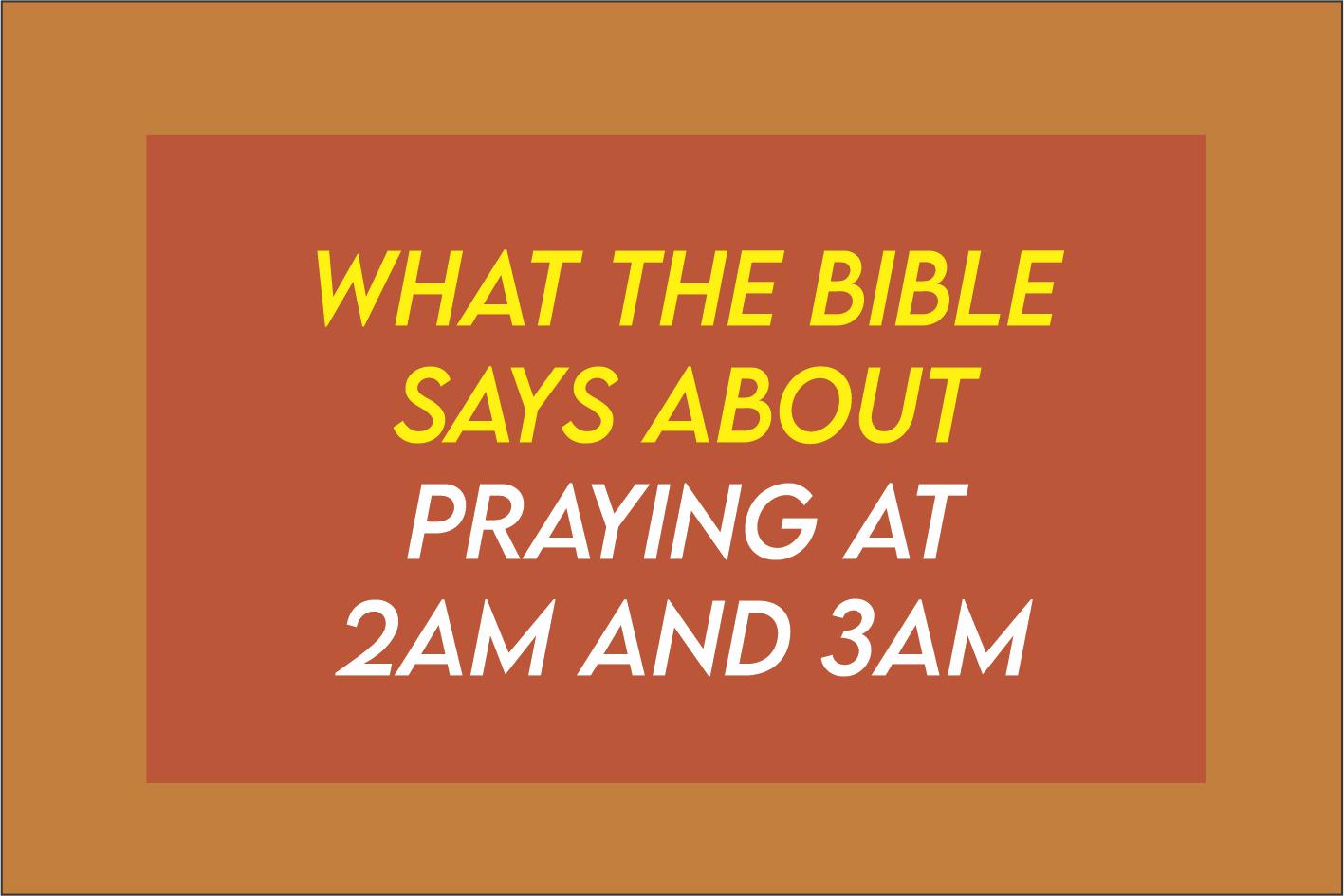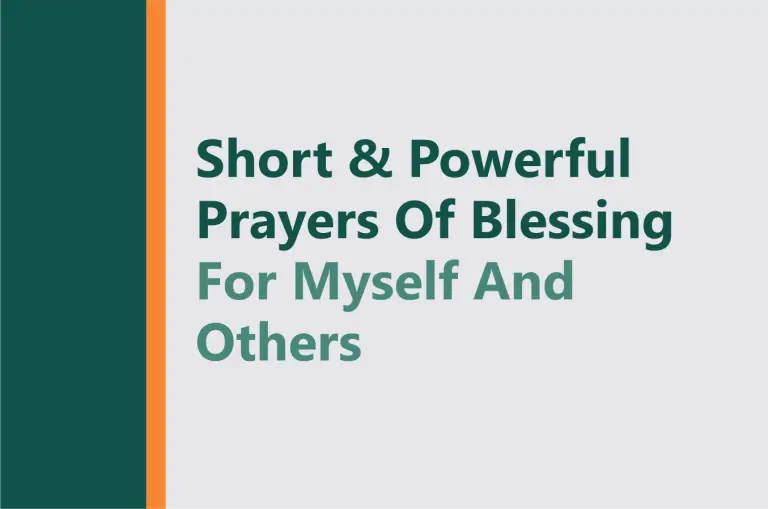Biblical Difference Between Praying At 12am And 3am Explained!
Christian prayer is a fundamental practice for believers to communicate with God. Jesus taught His disciples to pray, emphasizing faith and trust in God’s provision (Matthew 6:9-13).
The Bible encourages constant prayer (1 Thessalonians 5:17) and gathering in prayer with others (Matthew 18:20).
Prayer brings peace and offers a way to express gratitude, seek guidance, and find comfort in God’s presence (Philippians 4:6-7). It is a powerful tool for believers to deepen their relationship with God.
Difference Between Praying At 12am And 3am
Here are biblical explanations on the differences between praying at 12am and 3am with bible references
In Christianity, prayer is considered a vital part of the believer’s relationship with God. While there are no specific Bible verses that prescribe praying at specific hours like 12 a.m. or 3 a.m., I can provide you with information on the significance of prayer and its benefits, as well as biblical references related to prayer.
1. The Significance of Prayer: Prayer is an act of communication with God, expressing our thoughts, desires, and concerns to Him. It is an opportunity to seek guidance, offer thanksgiving, confess sins, and seek His intervention in our lives.
Jesus Himself emphasized the importance of prayer and encouraged His followers to pray regularly (Luke 18:1). The Bible also states that prayer is a means of experiencing peace and casting our anxieties upon God (Philippians 4:6-7; 1 Peter 5:7).
2. Praying at Different Times: While the Bible does not prescribe specific hours for prayer, it does mention instances where individuals prayed during different times of the day or night. Here are a few examples:
a. Praying at Midnight: In the book of Acts, Paul and Silas were imprisoned, and at midnight, they were praying and singing hymns to God (Acts 16:25). Their prayers resulted in a miraculous deliverance and an opportunity to share the Gospel.
b. Praying in the Early Morning: Several passages in the Bible speak about praying in the morning. King David, in the Psalms, expressed his practice of seeking God in the morning (Psalm 5:3). Jesus Himself sought solitude to pray early in the morning (Mark 1:35).
c. Praying in the Watches of the Night: The term “watches of the night” refers to specific periods during the night. The book of Psalms mentions these watches, but it does not associate them with specific times. However, the psalmist speaks of waking up in the middle of the night to meditate on God’s word (Psalm 63:6).
3. The Essence of Prayer: Regardless of the time at which we pray, what matters most is the heart and sincerity behind our prayers. God invites us to approach Him with a genuine desire to seek Him, and He promises to hear us (Jeremiah 29:12). Our prayers should align with His will (1 John 5:14) and be offered in faith (James 1:6).
It is essential to remember that while praying at specific times can be beneficial for personal discipline and focus, God is always available to hear our prayers at any moment. He is not limited by time or place (Psalm 139:7-12).
In summary, while there are no specific Bible references regarding praying at 12 a.m. or 3 a.m., the Bible emphasizes the importance of prayer and provides examples of individuals praying at various times. The key is to approach God with a sincere heart, seeking His presence and aligning our prayers with His will.
More Resources: Prayers To Pray In Difficult Times
Praying At 3am In The Morning
Praying at 3 a.m. in the morning holds significance for some Christians based on their personal beliefs and spiritual practices. While there is no specific biblical instruction regarding praying at 3 a.m., some Christians ascribe spiritual importance to this particular hour. Here are some arguments that may support the practice of praying at 3 a.m.:
1. Symbolism and Spiritual Vigil: The early morning hours, including 3 a.m., are often associated with a sense of spiritual vigilance and anticipation. In the Bible, it is referred to as the “fourth watch of the night” (Matthew 14:25), representing the darkest and most spiritually significant period before dawn.
Some Christians believe that praying during this time demonstrates a deeper commitment to seeking God and aligning oneself with His purposes.
2. Emulating Jesus’ Example: Jesus is often portrayed as rising early in the morning to pray and seek communion with the Father (Mark 1:35). Some Christians view praying at 3 a.m. as a way to follow Jesus’ example and participate in the spiritual discipline of seeking God in the early morning hours.
3. Quietude and Focus: The early morning hours, including 3 a.m., are generally quieter and less distracted than other times of the day. Praying during this time can provide an atmosphere of stillness and solitude, allowing individuals to focus more intently on their prayers and their connection with God.
4. Spiritual Warfare and Intercession: Some Christians believe that the late-night and early-morning hours, including 3 a.m., are spiritually significant for engaging in spiritual warfare and intercessory prayer. They may see this time as opportune for praying against spiritual opposition, seeking God’s protection, and interceding on behalf of others.
It is important to note that while some Christians find value in praying at 3 a.m., others may have different spiritual practices or emphasis on prayer during other times of the day. The effectiveness of prayer ultimately depends on the heart, sincerity, and faith of the individual praying, regardless of the specific hour chosen.
In summary, praying at 3 a.m. in the morning is a practice that some Christians undertake based on their personal beliefs and spiritual practices. It may hold symbolic significance, offer a time of quietude and focus, allow for emulating Jesus’ example, or serve as a dedicated period for spiritual warfare and intercession.
More Resources: Powerful Midnight Prayer Points
What Does The Bible Say About Praying At 3am
While the Bible does not specifically mention praying at 12 a.m. or 3 a.m., some Christians believe that certain times of the day or night have spiritual significance. Here are some perspectives that may be associated with praying at these specific hours:
1. Praying at Midnight: Midnight is often considered a significant time for prayer due to its symbolism in the Bible. In the Old Testament, it was during the night that God delivered the Israelites from slavery in Egypt (Exodus 12:29-31).
In the New Testament, Paul and Silas prayed and sang hymns to God at midnight while imprisoned, leading to their miraculous release (Acts 16:25-26). Some Christians believe that praying at midnight can be a time of seeking divine intervention, deliverance, or breakthrough.
2. Praying at the “Third Watch” (3 a.m.): The concept of “watches” refers to specific time intervals during the night. In ancient times, the night was divided into four watches of approximately three hours each. The third watch typically refers to the time between midnight and 3 a.m.
Some Christians associate the third watch with a period of heightened spiritual activity or a time when the presence of God can be particularly felt. They believe that praying during this time can lead to deeper spiritual experiences, revelation, and communion with God.
3. Biblical Examples of Nighttime Prayer: While the Bible does not explicitly mention praying at 12 a.m. or 3 a.m., it does highlight the practice of nighttime prayer. King David, known for his deep intimacy with God, expressed his commitment to seeking God in the watches of the night (Psalm 63:6).
Jesus Himself often sought solitude and communion with the Father in the early morning (Mark 1:35). These examples demonstrate the importance of setting aside specific times for prayer, including during the night.
It is worth noting that the significance of these specific hours for prayer varies among different Christian traditions and interpretations. Some individuals may find spiritual meaning and benefit from praying at midnight or during the third watch, while others may emphasize the importance of consistent prayer throughout the day.
Ultimately, the effectiveness of prayer does not solely rely on the time at which it is offered but on the sincerity, faith, and alignment with God’s will. The Bible encourages believers to pray without ceasing (1 Thessalonians 5:17) and to approach God with a genuine heart, regardless of the specific hour. God is always available to hear and answer our prayers (Jeremiah 33:3), regardless of the time we choose to approach Him.






